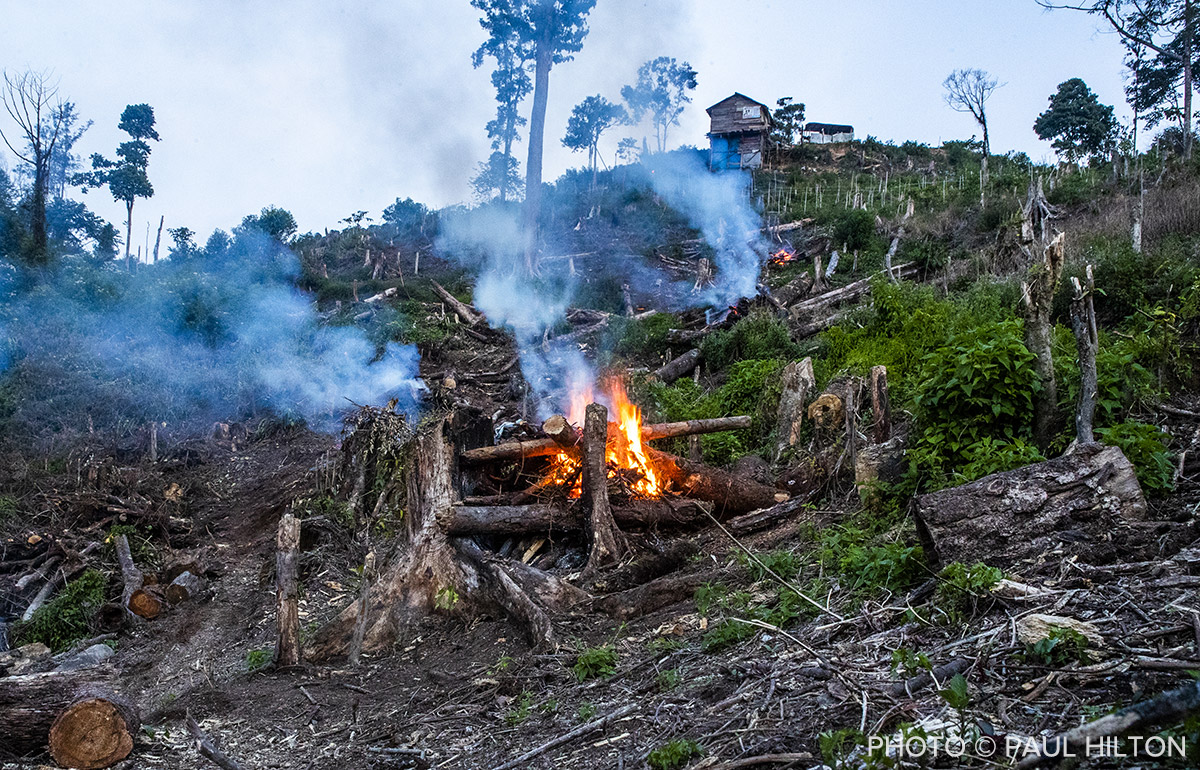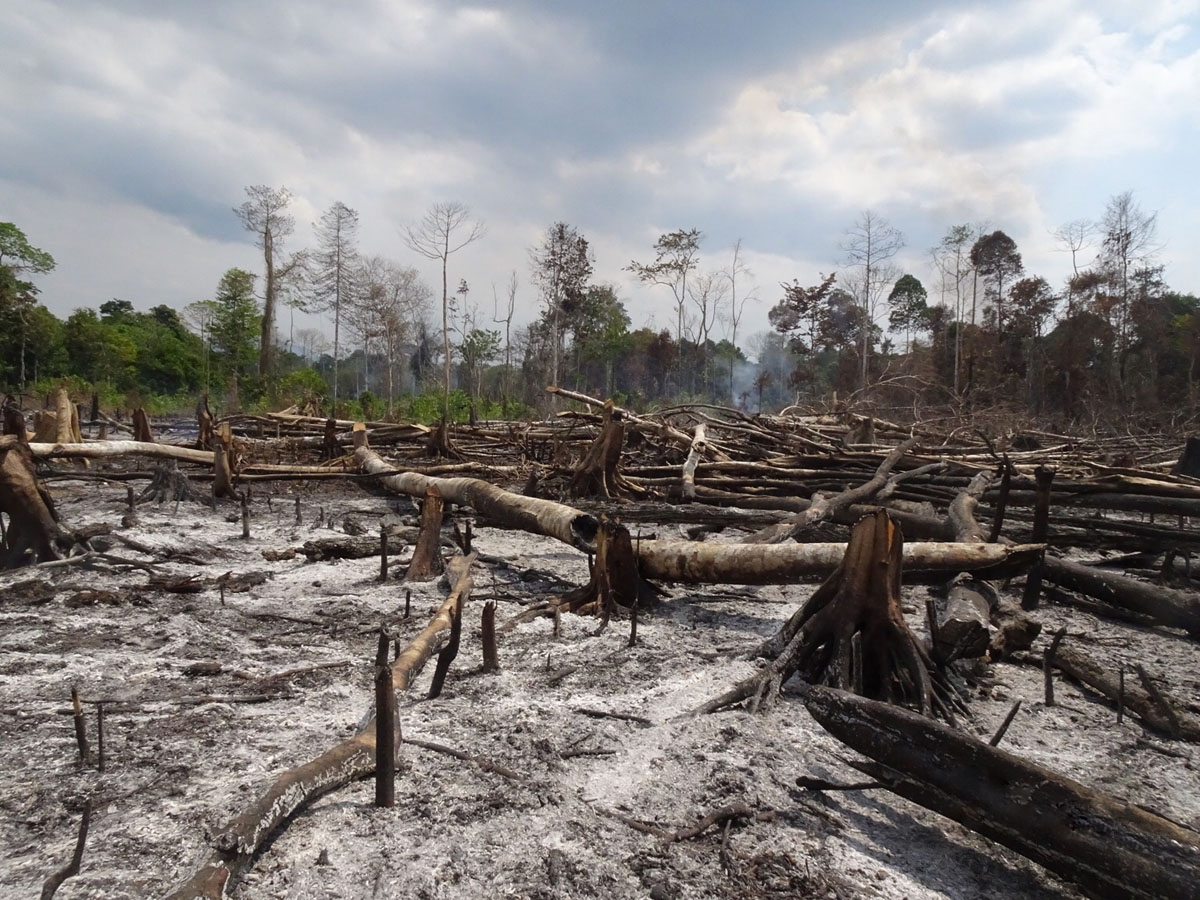
Three big things P&G is getting wrong and one thing you can do about it
- Human Rights Abuses in its supply chains.
P&G’s sourcing of palm oil is linked to human rights abuses,1 including horrific forced labor practices in Malaysia. A recent AP story highlights the experience of Jum, an Indonesian worker who had his passport confiscated and was forced to work palm plantations by day and hide out on the forest floor at night.2 From forced labor, illegal detention, and allegations of rape—P&G has some serious abuses in their supply chains and instead of finding and fixing the problems they feign ignorance and stick to their usual tricks of greenwashing, relying on inadequate certification schemes and allowing offenders to hide away in shell companies outside of public scrutiny. - Deforestation, driven by P&G paper products and palm oil.
The wood pulp P&G sources for Charmin and its other flagship tissue brands contribute to the degradation of climate-critical forests including the Canadian boreal forest.3 Palm oil is sourced from Indonesia and Malaysia where intact tropical rainforests continue to be destroyed to expand sprawling palm plantations. P&G has continued to put the rights of Indigenous and local communities, and the lives of countless threatened species at risk for the sake of profit. Over 400,000 activists have signed petitions urging P&G leadership to commit to stop fueling deforestation or intact forest degradation.4 - Climate change is happening now, there’s no time to waste and P&G is still part of the problem.
Forests offer a natural technology to collect carbon from the atmosphere and store it. But when forests are cleared and burned it’s a one-two punch to the climate, releasing huge amounts of carbon into the atmosphere while reducing the planet’s ability to remove it from the air we breath. P&G knowingly contributes to the climate crisis with their sourcing and operations; it’s essential that P&G change course and put substantial resources towards real solutions.
But there is something P&G can do about it right now. This week, at P&G’s shareholder meeting, shareholders have the opportunity to vote on a resolution with a different outcome, one that puts people and planet before profits.
If you or someone you know owns one or more shares of Procter & Gamble stock, you have a special opportunity to protect forests before the Tuesday, October 13th deadline. Follow this link to vote in support of Shareholder Proposal #5.

- Rainforest Action Network, Keep Forests Standing: Exposing Brands and Banks Driving Deforestation, March 2020, https://ran.org/keepforestsstanding-report.
- Palm oil labor abuses linked to worlds top brands, banks https://apnews.com/article/virus-outbreak-only-on-ap-indonesia-financial-markets-malaysia-7b634596270cc6aa7578a062a30423bb
- Shelley Vinyard, “The Issue With Tissue 2.0,” NRDC, June 24, 2020, https://www.nrdc.org/experts/shelley-vinyard/issue-tissue-20.
- “Tell Charmin: Nature’s Calling, and She Wants Her Forests Back!” NRDC, accessed September 26, 2020, https://act.nrdc.org/letter/boreal-charmin-190220.
